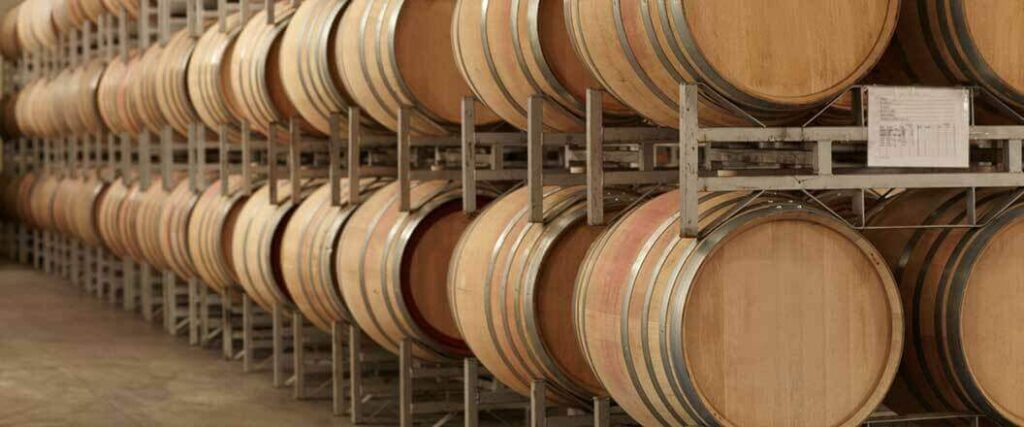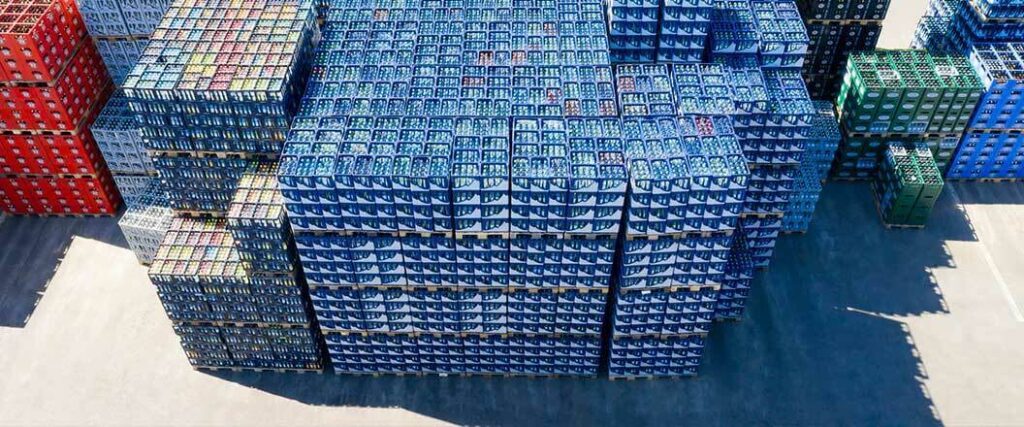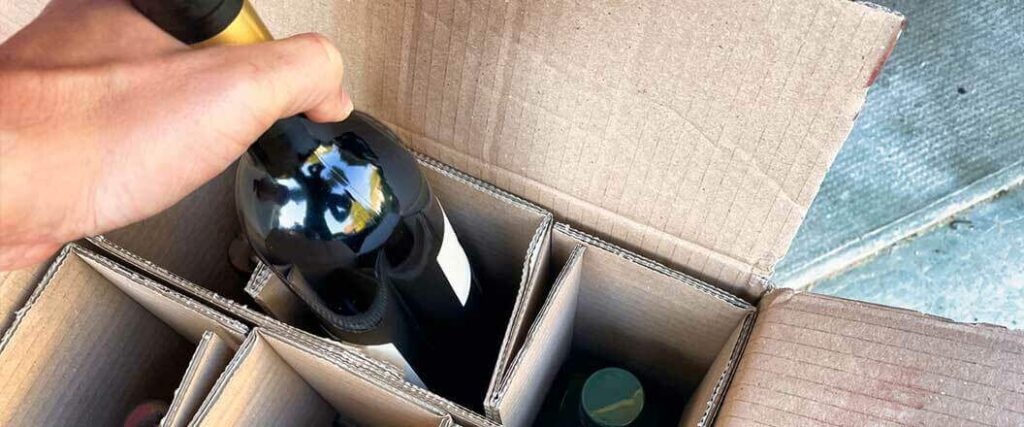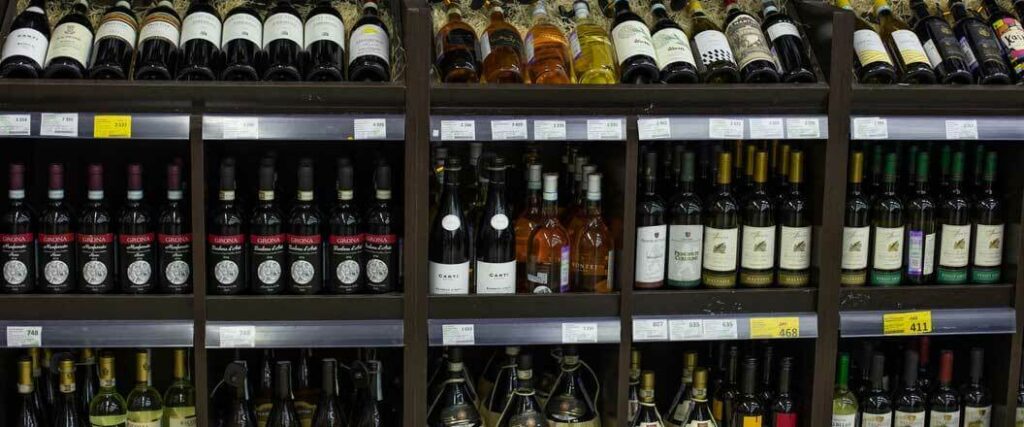
French wine. Russian vodka. Italian prosecco. Japanese sake. These alcoholic beverages are just a few of the reasons why you might want to import alcohol. Learn how to import alcohol to expand your palate and grow your business.
According to the Alcohol and Tobacco Tax and Trade Bureau (TTB), those who import bottled alcohol -- including wine, malt beverages, and distilled spirits -- must file for a Federal Basic Permit. Sometimes referred to as an alcohol import license, this document is key to compliance with the Federal Alcohol Administration Act (FAA).
Get into the spirit of things and join us as we look into the world of imported alcohol.

Before we get into the details of importing alcohol, there are a few federal agencies involved in the process that we should review.
Since there are so many government agencies involved, it should come as no surprise that an equally complex amount of paperwork is involved too.
Some of the most popular alcohol brands come from abroad. Beer, wine and distilled spirits from international sources fill glasses across the country.
To get a good idea of how popular foreign liquors are in the USA, take a look at these sales figures from 2022.
| Brand | Category | Sales Volume |
| Don Julio | Tequila | 1.39 million |
| Crown Royal | Canadian Whiskey | 7.20 million |
| Grey Goose | Vodka | 4.2 million |
Source: vinepair.com
With so many popular beverages coming from outside the U.S., distributors should look into the demand generated by certain brands,
This article is about importing beverage alcohol to the U.S. Would you like to import rubbing alcohol? See "How to Import Isopropyl Alcohol."
There are several forms to complete before you can import alcohol. The first is a basic permit, which is available online.
Follow these steps to get your basic permit:
You can also use this tool to check the status of your permit application. Alternatively, you can submit a paper form instead if you prefer. Keep in mind, it can take up to six weeks to receive the needed permit.
To get the basic permit, you must have a business in the U.S. Doing so will get you an Employer Identification Number (EIN), which will be used for tax purposes. If you do not do business in the U.S., you must contract with a licensed importer.
Making an arrangement with a licensed importer means you won’t need to apply for your own permit.
You can also register for a Standard Wholesaler’s Permit through TTB’s website. This is necessary if you plan to wholesale your imported alcohol. There is no fee to apply for any permit.
The FDA also has its own requirements for imported alcohol. It mandates that foreign alcohol makers register under the guidelines of the Food Facility Registration Regulation. Many foreign companies that produce alcohol are already registered. Checking the registry for your alcohol producer can save time and lessen the burden of importing alcohol.
It’s also important to send the proper documents with your imported alcohol. They include, but aren’t limited to, the following:
Your paperwork will also need to contain the Harmonized Tariff Schedule (HTS) code of your goods. Other paperwork may be required based on the brand, type, or proof of alcohol you plan to import.

There are also federal guidelines involving alcohol label approval. You must get a Certificate of Label Approval (COLA) to import alcohol. The COLA certificate allows you to comply with FAA guidelines under the TTB’s Advertising, Labeling and Formulation Division (ALFD).
You may apply for the certificate through COLA online. The importer of alcohol must have this certificate when the alcohol is imported. Additionally, the COLA process might include pre-COLA authorization. This advance product approval depends on the type of alcohol imported.
Pre-COLA evaluations for approval ensure that:
Rules for pre-approval apply to some wine, malt beverages, and distilled spirits. If a pre-COLA evaluation is required for your imports, you must submit all documents with your application.
It’s also important to note that your Permits Online username and password should work for COLA Online. There is no need to create a separate account and no fees currently apply.
Another document the TTB requires for importing alcohol to the USA is a Certificate of Age or a Certificate of Origin for your imported alcohol. The TTB issues these certificates itself.
The certificate(s) must state the following:
The CBP uses this certificate to determine several factors necessary for import. It also helps the bureau determine duty rates, U.S. trade quotas, and whether the import is affected by sanctions against a specific country.
The certification you need depends on the alcohol you intend to import. According to the TTB, alcohols and spirits requiring certification include:
If the alcohol you are importing claims to be organic on the label, you’ll need to follow the rules of the USDA’s organic regulations. This includes submitting certification that the hops, fruit, or other produce used in the alcohol beverage comply with USDA organic regulations.
Importers are responsible for paying all duties and taxes on imported alcohol. The CBP and IRS also collect excise tax on all imported wine, beer, and distilled spirits. Excise taxes are paid on specific products, like gasoline or alcoholic beverages. The TTB has a chart with fee and tax rates on its website.
A reciprocal tariff was levied against most U.S. trade partners. Imports from most countries were being charged a baseline tariff of 10% ad valorem. There was also a list of countries with independently assigned rates that were much higher.
Fortunately, tariffs for most of these tariffs have been halted for 90 days on April 9th, 2025. All countries, except for China, will now be subject to a 10% flat tariff.
Additionally, importers are required to register as alcohol dealers if they are importing for a business. This must be completed before you start doing business. You can register as a dealer by completing a form that is available online as a PDF.

Wine importing is big business. Connoisseurs and wine aficionados know that wines from around the world are popular among consumers and pleasing to the palate.
According to information from Eating Well magazine, five of the most popular wines and their common countries of origin include:
Importers of wine produced after 2005 must comply with the Miscellaneous Trade and Technical Corrections Act of 2004. These rules apply to ensure wine is made from sound or ripe grapes and has proper cellar treatment. To meet these guidelines, you must obtain a Natural Wine Certificate from the TTB.
No certification is required if the country from which the wine is exported has an enological practices agreement with the United States. Enology refers to the scientific processes behind making and cellaring wine.
Wine containing between 7 and 22 percent ABV (alcohol by volume) from the following countries is exempt from the Natural Wine Certificate:
The U.S. also has an enological practices agreement with the European Union. This means wines between 0.5 and22 percent ABV imported from EU member states are exempt as well.
These rules only apply to wine made from grapes. Mead and wines made from fruit and berries are not exempt. The certification must include an affidavit from the country’s government stating there is control over enological practices. It should include a lab analysis report of the wine from an approved or certified laboratory.
Under certain circumstances, an importer may ‘self-certify’. According to the TTB, an importer can self-certify if they own or control a winery that operates under a permit that certifies they produce wines under FAA rules.

Americans love their beer, and not just American brews: imported beers are popular, too. Over 20 percent of all beer consumed in the United States is imported, and this number is on the rise.
These countries are some of the world’s premiere beer exporters.:
The TTB requires beer importers to follow many of the same procedures as those importing wine and liquor.
These include

Many of the rules and regulations for importing alcohol are in place for businesses. If you are an individual who would like to import alcohol for personal use, there are a few different rules to follow.
CBP does not allow shipments of alcohol through the USPS. You’ll need to use a different carrier. Of course, this doesn’t apply if you’re simply bringing some bottles back on your person from a duty-free shop after a vacation or cruise.
There are no federal regulations on the amount of alcohol you can import for personal use. However, you should check with your state’s Alcohol Control Board (ABC) for any state-level limits. If you’re importing a large quantity of alcohol for personal use, it might be wise to contact the port of entry and ask if a permit is needed in advance.
You can expect to pay duties of $1 or $2 per liter to import beer and wine. The duty on distilled spirits and fortified wines is much higher. You can find more information about duty rates in Chapter 22 of the HTS. The IRS will also collect excise tax on your shipment.
Those importing a wine collection as part of their personal effects will have to follow the same guidelines as those importing alcohol for personal use.
As of March 15, 2022, there’s a very simple answer to this question: don’t. Executive order 14068 bans the import of several Russian products into the USA, and alcoholic beverages are among them. This is a sanction, which means it could be removed in the future based on changes in the global political landscape.

If you want to tap into the tequila market, there's no better place to start than Mexico. The role that Mexico plays in the global tequila market can't be understated. In 2023, Mexico produced over 570 million liters of the agave-derived liquor, and the USA purchased more than its fair share.
Additionally, the majority of well-known tequila brands are based in Mexico. These brands include:
Importing tequila from Mexico to the U.S., is simple when compared to other countries. This can be attributed to the fruitful trade relationship between the U.S. and Mexico. The United States-Canada-Mexico Agreement (USMCA) formerly known as NAFTA, outlines agreed-upon trade policies between the three contiguous countries.
Because of the relationship between the U.S. and Mexico, importing tequila and other popular liquors, such as mezcal, from our southern neighbor results in less scrutiny than importing from other countries.
With that being said, all applicable rules and regulations are still in place. This includes obtaining an import permit and submitting all appropriate import documentation as.
Buying alcohol from an international supplier isn’t like purchasing from a domestic supplier. In some cases, different payment methods are required. There are several common payment methods to consider when importing alcohol.
Four common methods of payment when working with foreign suppliers include:
Each of these methods of payment has its own benefits and risks. The most common method of payment depends on where you are importing alcohol from Wire transfer is a common method of payment when importing alcohol from Europe.
It’s also important to be aware of changing currency exchange rates when paying the supplier. Even if they give you a quote in USD, the amount you pay might fluctuate based on rates of exchange.

Shipping companies that transport alcohol internationally do so within specific guidelines. Working with a licensed customs broker can make this process streamlined and simple.
The basic guidelines are outlined below:
The Public Health Security and Bioterrorism Preparedness and Response Act of 2002 (known as the Bioterrorism Act) mandates the FDA receive prior notice of food products, specifically alcoholic beverages in this case.
This rule is in place to protect the nation against public health emergencies and terrorist acts related to the food supply. .
Once in the country, importers need to consider individual state laws when it comes to alcohol deliveries. There is a difference between direct deliveries to customers than to a business or warehouse. Most states strictly regulate direct to consumer (DtC) alcohol shipments.
These regulations are usually based on the type of alcohol being shipped.
For instance, wine is legal for DtC shipments in all states besides Mississippi and Utah. On the other hand, only seven states allow DtC liquor shipments, and even fewer allow beer to go straight to the customer.
The CBP requires that you use a bond when importing goods subject to regulations from any federal agency or valued at more than $2,500. Because importing alcoholic beverages involves several government agencies, a customs bond is required.
A customs bond covers the payment of taxes and duties to the U.S. government. It makes sure that your taxes and duties will be paid even in extenuating circumstances, like the closure of your business or bankruptcy.
Customs bonds are required for shipments arriving in the country by land, sea, and air. You can face delays or fines if you do not have a bond when importing alcohol.
There are two main types of customs bonds:
The bond type you choose will likely ultimately depend on how often you plan to import alcohol into the U.S.
The price of a customs bond can vary. If you are working with a customs broker, they might include the use of their bond into the cost of doing business.
Working with your licensed customs broker is an essential part of importing goods, including alcohol. Your broker works with you to make sure your goods move efficiently across borders and arrive at the destination on time.
If you decide to work with a licensed customs broker to import alcohol, they can assist in securing the customs bond required for your transaction.
Your broker will also ensure your shipment adheres to all customs laws and regulations. It’s their job to work in the best interest of their clients.
Customs brokers can arrange several services, including:
Your licensed customs broker is an expert at work for you, putting their experience and knowledge on your side.
You’ll find a few restrictions in place for alcohol imports, including:
These laws and regulations are in place to keep consumers and borders safe. Their restrictive nature may make the importing process seem too complicated. If so, we can offer assistance with your spirited business venture.
Now that you’ve learned a little about how to import alcohol, you might be ready to get started or need more information. Talking with a licensed professional can help you avoid common pitfalls and smooth out your own import process.
We offer the following services to assist importers in the USA.
Do you have questions or are you ready to get started with importing goods? Call our expert team at (855) 912-0406 or get in touch with us online. We’ll put you in touch with a customs specialist who can get you the information you need now.
 Copy URL to Clipboard
Copy URL to Clipboard
I need to import my wines from south africa cape town to florida usa
I am interested in your consulting services concerning importing Mezcal from Mexico.
Question: Custom bonds can have different pricing? If so, what is most cost effective, using a custom broker or purchasing a single-entry? What are the benefits if they are products within NAFTA territories?
Hi Julia,
Working with a Licensed Customs Broker provides a number of important benefits. This includes identifying all required regulations your import will need to adhere to, filing all necessary paperwork to CBP, and properly classifying your products with the correct HTS code. Even if your products come from a NAFTA eligible country, you'll need to provide additional documentation that proves the your goods are coming from a NAFTA country.
We'd be happy to help you with your imports!
We are interested in having 12 liters of Vodka shipped into USA via Poland or Israel. Bottles are samples for a potentially much larger business
If you already have your business established, you'll need a customs bond if the sample bottles equal $2500 or more in value. However, if they do not it'll be considered an informal entry, which will still require you to pay duties and taxes and you'll still be subject to regulations for importation of alcohol. If you think you might need a bond, you can buy one right here on our site or you can chat with one of our import specialists who can help you through the process. We also offer consulting if you just aren't sure what steps to take next. Chat can help you set that up, too.